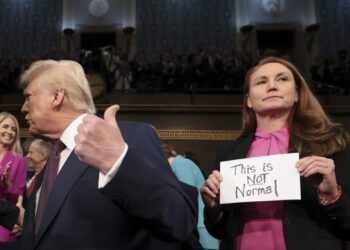
A Republican House member is reintroducing legislation Wednesday that would eliminate taxes on overtime pay, an idea that has gained momentum among some lawmakers after President-elect Trump touted it on the campaign trail.
Rep. Russ Fulcher (R-Idaho) is set to unveil the Keep Every Extra Penny Act, which would specifically get rid of income tax on overtime wages, according to a release shared first with The Hill.
“Americans who choose to work overtime to support their family should be able to keep more of their hard-earned paycheck, not less,” Fulcher said in a statement. “After years of suffocating inflation, many are looking for financial relief. This legislation will help address our nation’s significant workforce shortage and put more money back in people’s pockets.”
Fulcher first introduced legislation to eliminate taxes on overtime wages in July, pitching it as a way to aid workers dealing with higher costs. It did not receive a vote in the last Congress, so he is introducing it again Monday as Republicans have taken control of both chambers on Capitol Hill.
Under the legislation, Americans eligible for overtime under the Fair Labor Standards Act would be exempt from income taxes on overtime. The legislation would not target payroll taxes, in an effort to leave Social Security and Medicare funding unaffected.
Roughly two months after Fulcher first introduced his bill, Trump called for ending taxes on overtime wages for individuals who work more than 40 hours in a week.
Vice President Harris’s campaign at the time dismissed Trump’s proposal as “desperate,” contrasting it with the Justice Department under his first administration opting not to defend an Obama-era Labor Department rule that would have extended overtime benefits to more than 4 million workers.
Trump on the campaign trail also proposed ending taxes on tipped wages and called for eliminating taxes on Social Security benefits. He has also floated lowering the corporate tax rate.
Many of Trump’s tax policy proposals are expected to be discussed as part of upcoming reconciliation negotiations among congressional Republicans. The party has been debating whether to package tax policy, including an extension of the 2017 tax cuts Trump signed into law, with immigration reform, or whether to split it into two separate pieces of legislation.







